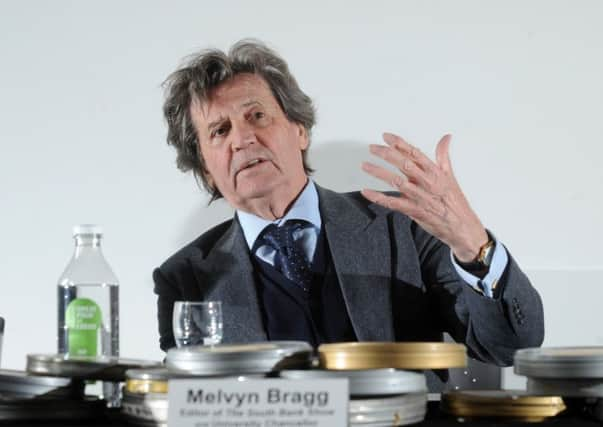Melvyn Bragg: BBC broadcasts the true value of a public service


This is rare in any broadcasting organisation anywhere in the world, or at any time, but it has three out of three so far and it is only April.
In the end, the BBC is the sum of its programmes. The Panorama programme on the Panama tax set-up boldly set the context for what should become an essential and continuing debate. Newsnight had the nerve to bite the hand that feeds or could starve it and has wounded it already with its piece on Culture Secretary John Whittingdale.
Advertisement
Hide AdAdvertisement
Hide AdThe news struggles with impartiality and the delicate task of balancing what are often rather overheated and undercooked arguments but it is still walking the tightrope admirably.
A magnetic murder in The Archers has caught the imagination of so many people in this country.
Above the noise there is the even beat of the five national and many regional radio channels, which perhaps more than any of the BBC’s productions best represent the muscle, pulse and mind of this nation.
Wherever there are debates on the BBC — I have taken part in half a dozen over the last six months – if a vote is asked for there is always a wholly convincing majority for supporting the BBC. I see no demonstrations about the BBC in our streets, yet in our country there would be demonstrations about the removal of a bus stop.
Advertisement
Hide AdAdvertisement
Hide AdThere is global admiration of the BBC, which is Britain’s most admired brand.
It encourages a multitude of writers, actors, producers, directors and researcher talents in radio and television, which is the cornerstone of the cultural power that this country undoubtedly has at the moment.
No other country has this and it is, per head, comparatively inexpensive. I do not need to go on. It works magnificently, delivers for this country and is still recognisably within the discipline of Lord Reith.
However, we seem to exist in an atmosphere of permanent crisis about the future of the BBC, from the Government and from parts of the media, as if it were a patient etherised across the sky, in constant need of attention and operations from higher forces that are dive-bombing it again and again.
Advertisement
Hide AdAdvertisement
Hide AdMost of us do not see what the fuss is about. It is not too difficult to pick out sources of discontent, some of which have grievances that need to be addressed, of course.
Principally, for instance, the imperial growth of the BBC disturbs the unsubsidised parts of our information economy.
The BBC is right to be much more aware of that now than ever before.
Even imperialism that is thought to be by the good guys is still imperialism and ultimately unacceptable.
Advertisement
Hide AdAdvertisement
Hide AdThe BBC is so vast in its output that it is not too difficult to pick up or embellish an anti-Auntie story quite regularly, in sure and certain knowledge that the compelling letters “BBC” will draw readers’ attention to the contents of that story.
The BBC is at once a national treasure and a national dartboard; that seems to be its dual role.
Digging into this, it is argued by some that the BBC’s fundamental singularity – or to use a royal term today, peculiarity – is an affront to the prevailing free-trade and ever-rolling capitalism of the day. Indeed, in some respects it interferes with it unacceptably.
Or you could see it another way: as a stimulating alternative, it adds to the variety and richness of this country and gives an oppositional argument.
Advertisement
Hide AdAdvertisement
Hide AdIt appears to me that the BBC’s many roles are seamlessly interwoven into the tapestry of broadcasting that we have in this country and, further, that the roles of others are tempered – they are often encouraged and even enriched – by the competition and interchanges with the BBC.
The BBC does what it does with style, consistency and force. It brings together majorities and minorities in watching the same programme or live event.
Most of all, though, the BBC is a statement of public service. That phrase has seen its meaning and strength weakened over the years.
In area after area of our public life, too often those at the top who were once content to be public servants have found themselves outflanked and diminished by those who believe that public service is just another ladder to personal riches. Pro bono publico has not gone away, though.
Advertisement
Hide AdAdvertisement
Hide AdMillions of people in the United Kingdom are still alive to it, still working by it, still believing that work is one thing and serving the public is another, and they need not be separate.
Melvyn Bragg is a broadcaster and Labour peer who spoke in a House of Lords debate on the future of the BBc. This is an edited version. He is also Chancellor of the University of Leeds.